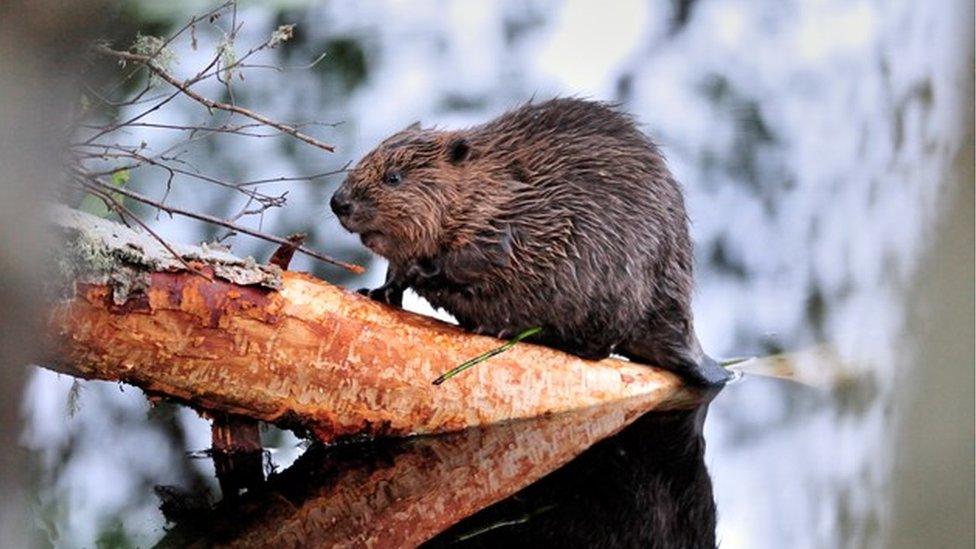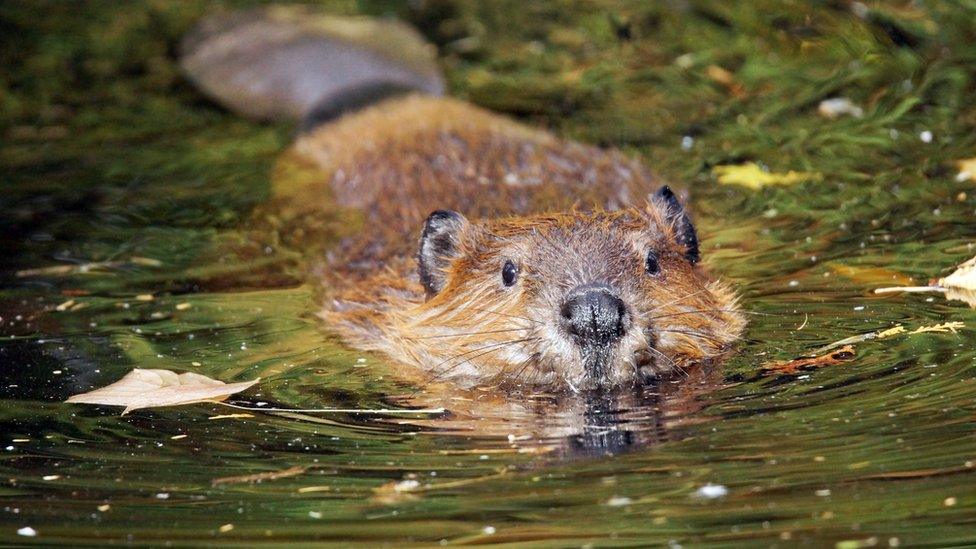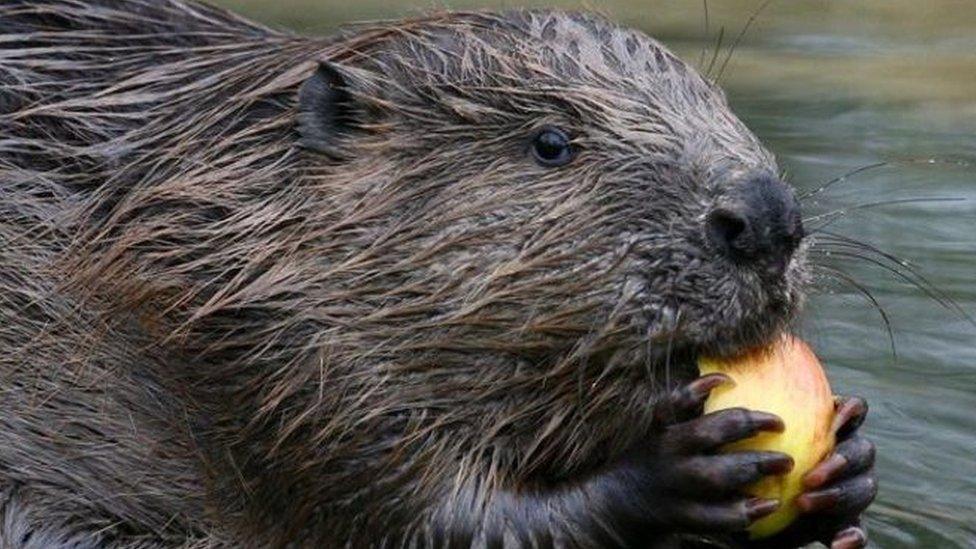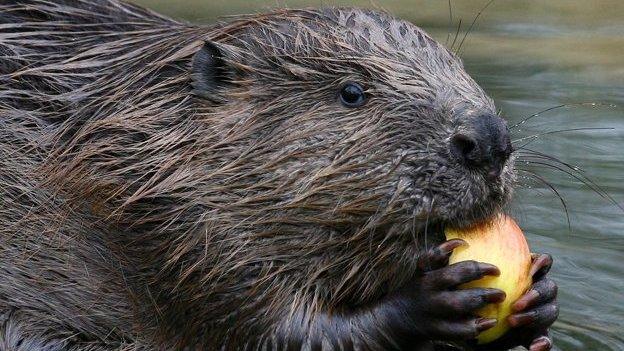Rising beaver numbers in Tayside worry farmers
- Published

About 430 beavers now live on the Tay
The number of wild beavers descended from illegally released animals living in Tayside has nearly tripled, according to Scottish Natural Heritage.
About 430 beavers now live in the region, up from 150 in 2012.
The beavers first appeared in the Tay 12 years ago and have now spread to the River Forth.
Scottish Natural Heritage (SNH) is setting up a scheme to support farmers who are said to be angered by the damage beavers cause.
Nick Halfhide, SNH director of sustainable growth, said: "We are setting up a mitigation scheme - with input from a range of interest groups such as NFU Scotland through the Scottish Beaver Forum - to develop and trial techniques to help farmers deal with any problems they encounter.
"By building dams, beavers improve local water quality and help nurture other wildlife, and it's wonderful that people now have a chance to see these fascinating creatures in their natural habitat.
"But in some parts of Scotland, beavers can cause problems, particularly in areas with prime agricultural land."

The beavers were first released illegally 12 years ago
SNH will provide farmers with free advice and solutions, including techniques such as piped dams and flood bank protection.
One farmer, speaking to BBC Scotland's Landward programme, said: "In a normal year with normal rainfall we could lose five to eight acres of this field if we don't keep on top of the dams to stop the drains working.
"I think the last year we've had about 25 dams, and we're constantly cleaning them out, it costs us about £4,000 a year to do it."
The study, carried out by the University of Exeter, found the 430 beavers live in over 100 active beaver territories.
The survey detected 72 beaver lodges, 339 burrows, and 86 dams.
'Allowed to thrive'
Beavers were detected as far north as Dunalastair Water and Loch Earn in the south.
They were also found in the Forth near the main stem in Stirling and Loch Achray in the Trossachs.
The Scottish Wildlife Trust believes that beavers need more protection and has welcomed the support SNH will give farmers.
Susan Davies, director of conservation, said: "It is alarming that there are a number of areas where beavers are absent due to unregulated culls. We believe it is time for the Scottish government to complete the steps required to give beavers protected status.
"This was promised at the end of 2016 but progress has been too slow. Granting legal protection would ensure that beavers are allowed to thrive across Scotland."
- Published19 July 2017

- Published31 January 2016
